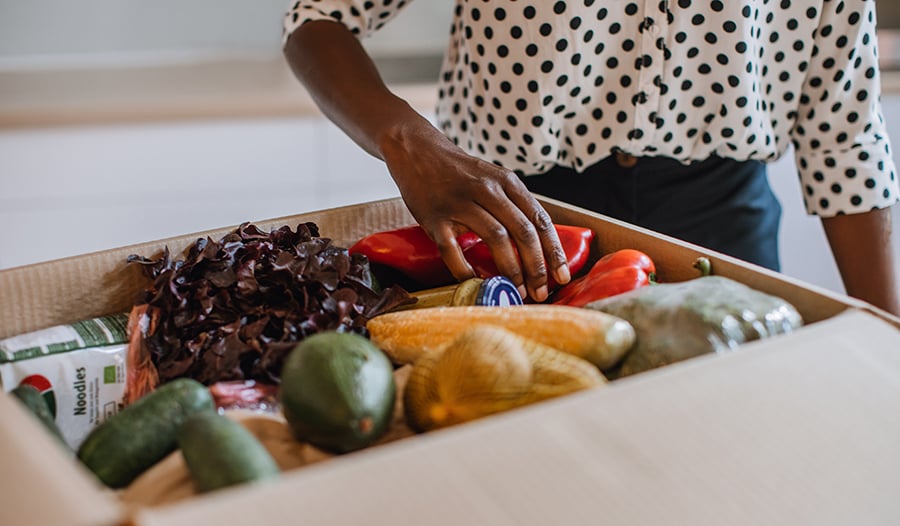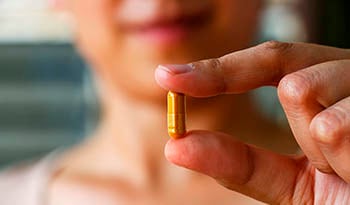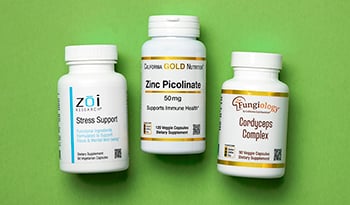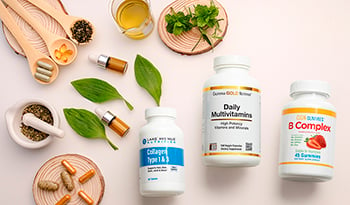What You Need to Know About Ordering Natural Products Online
DISCLAIMER:This blog does not intend to provide diagnosis...
- In this article:
- Beware of Fake Products When Shopping Online
- Does Where You Buy Supplements Matter?
- The Importance of Quality Control
- Tips for Checking for Quality
- 6 Tips for Shopping for Supplements Online

Originally posted April 2023 / Updated June 2023
Beware of Fake Products When Shopping Online
Now Foods, one of the largest global vitamins, minerals, and supplement brands, has faced challenges with fake products sold on major shopping portals. Most recently, Now Foods has been facing challenges with this issue on Amazon.
View the Now Foods announcement here.
Does Where You Buy Supplements Matter?
In a Wall Street Journal article titled You Might Be Buying Trash on Amazon – Literally? Reporters investigated how almost anyone can open a store on online marketplaces and sell almost anything. Wall Street Journal reporters went dumpster diving in several New Jersey towns looking for things they could turn around and sell on the world’s top marketplace. They successfully listed a sealed jar of Trader Joe's lemon curd, among other ingestible items. It turned out to be easy.
The article got me thinking about the importance of knowing what you buy when buying a dietary supplement. Honestly, when I look at dietary supplements being sold online many times, I have no idea who the manufacturer is, which concerns me. Unfortunately, it is sad that the dietary supplement industry is still plagued by some companies looking to make a quick buck. They may do this by making unsupported claims or by marketing poor-quality products that may contain ingredients below the label claim. Sometimes companies put out products adulterated with unwanted toxins or perhaps even laced with prescription drugs.
In general, these situations happen mainly with fly-by-night Internet upstart companies as most well-respected, established brands would not jeopardize their reputation by not following good manufacturing practices (GMP) or by selling a product that does not meet label claims. They have too much to lose.
The Importance of Quality Control
Over the years, many organizations have conducted independent chemical analyses of various types of commercial products. Most often, companies that employ “good manufacturing practices” or “GMPs” have processes to guarantee that what is stated on the label is actually in the product. But, these assurances are not required. Some very good certification organizations provide quality control guarantees, like NSF® (National Science Foundation), USP® (United States Pharmacopeia), and ISURA®. Still, manufacturers also tend to validate their raw materials and products through 3rd party laboratories. Some companies practice transparency by posting chemical testing of their products to assure consumers of quality.
Here is an example of the problem of not meeting label claims. Back in 2018, some team members at iHerb noticed extremely low prices for CoQ10 being sold online from 3rd party resellers on a well-known online marketplace. These products were well-packaged, used engaging promotional imagery, and even had tons of 5-star reviews! But the price was impossibly low.
Here is what alarmed the iHerb team: the products were being sold at a price far below the cost of the raw material and manufacturing costs of CoQ10. Something was just not right. So the iHerb team ordered the cheap CoQ10 and had an independent lab test them. What they found was extremely distressing! Instead of the claimed 400 mg, only 116 to 127 mg of CoQ10 was found in the products! This test showed the same misleading results for not just one brand but three different ones, each competing for the top spot! Moreover, this was only one set of products tested.
Why is this situation so distressing? As a physician, I know the value of getting the proper dosage of these supplements like CoQ10. They can provide critical support. An insufficient dosage means that CoQ10 or any other supplement given at less than the beneficial level may not produce its desired effect. It could be the difference between improved health and severe consequence.
Tips for Checking for Quality
Most of us have shopped online thinking we were buying a great product due to high numbers of reviews and a bargain price, only to find out later that the product was garbage. Buying a toy or device that doesn’t work is one thing. It is an entirely different thing when it comes to dietary supplements. Don’t worry. I will explain the best steps to take to ensure you are getting a quality product.
First, let me explain what I believe is going on. Some companies are taking advantage of major online marketplaces' marketing and logistic abilities. Their tactics include attracting customers by creating fake reviews and quickly creating new brands if they are shut down by the marketplace or Federal Trade Commission (FTC).
Compounding the problem is that while most marketplaces also carry major name brands, their prices are naturally higher, they have fewer reviews, and they generally spend less on marketing on marketplaces. This may result in lower rankings on a marketplace, making it difficult for customers to find higher quality products.
As a physician dedicated to promoting and getting the most from natural products, I want consumers to choose the best. Unfortunately, I can empathize with consumers wanting the best prices. But the old adage is true here – you always get what you paid for. And, if the price is too good to be true, there is probably a reason for it. Consumers should be cautious if the price is substantially lower than leading brands. Assuring quality requires testing and other steps that are expensive and add to the cost. But, these costs are well worth taking a product for your health. It is smart.
6 Tips for Shopping for Supplements Online
1. Look for genuine customer reviews. It is easy to buy thousands of fake 5-star product reviews quickly. At iHerb, we only show authentic product reviews posted by customers verified to have purchased the product. One review per product, per customer.
2. Always check the expiration date of the products you order. iHerb shows expiration dates on the products you shop for.
3. Ensure products are stored in climate-controlled warehouses following Good Manufacturing Practice Guidelines. All iHerb products are stored and shipped from our GMP-certified, climate-controlled warehouses.
4. Buy products with quality control guarantees like NSF® and USP® or validate their raw materials and products through 3rd party laboratories. iHerb Brands are tested for quality and authenticity through the iTested program.
5. Avoid fake products from unknown brands. iHerb partners with well-known brands in the natural products space, including Now Foods, directly. Read our blog about fake brands.
6. Avoid fake products from a well-known brand. There are a lot of other brands being faked on shopping portals. They need to be discovered.
There are a lot of reasons that I have confidence in ordering from iHerb. They run their business much differently from the major marketplaces. Be sure to check out the About iHerb page to see all the important steps to ensure quality.

 By Dr. Michael Murray, N.D.
By Dr. Michael Murray, N.D. 


